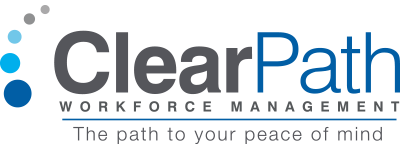Despite the #MeToo movement shining light on the issue of sexual harassment in the workplace — and taking down several high-profile alleged perpetrators in the process — some companies are still not doing enough to educate their employees, nor are they prepared for the new sexual harassment training requirements that have recently become mandatory in some states.
The focus on the #MeToo movement inspired some progressive legislatures last year to revisit mandatory sexual harassment training programs statewide for nearly all workers and supervisors, as part of the sweeping effort confronting power imbalances between men and women in the workplace. Workers who experience sexual harassment should be able to feel comfortable going to their companies to resolve the situation. It is the company’s responsibility to provide a workplace free from sexual harassment. Companies need to do a better job making sure all employees understand that sexual harassment will not be tolerated in the workplace and reports will be taken seriously. Federal and state laws or employer policies also offer additional protections to employees. Some state laws are changing the requirements on training.
The Federal Law
The U.S. Equal Employment Opportunity Commission (EEOC) states1 :
It is unlawful to harass a person (an applicant or employee) because of that person’s sex. Harassment can include “sexual harassment” or unwelcome sexual advances, requests for sexual favors, and other verbal or physical harassment of a sexual nature.
Harassment does not have to be of a sexual nature, however, and can include offensive remarks about a person’s sex. For example, it is illegal to harass a woman by making offensive comments about women in general.
Both victim and the harasser can be either a woman or a man, and the victim and harasser can be the same sex.
According to the EEOC, sexual harassment is a form of sex discrimination. Under the Civil Rights Act of 1964, you have the legal right to be protected from discrimination in the workplace if your company has 15 or more employees.
The State Laws
The most comprehensive sexual harassment policies that were passed last year are in California and New York, two states that are often leaders on new initiatives in the employment law space. New York’s state rules went into effect in October 2018, and employers have until October 2019 to implement training programs. California bolstered its existing training requirements.
California Sexual Harassment Training
The one-year time-clock has now begun ticking on implementing new, mandatory sexual harassment awareness and prevention training for companies in California with 5+ employees.2
- Employers must provide sexual harassment prevention training to temporary or seasonal employees within 30 calendar days after the hire date or within 100 hours worked if the employee will work for less than six months. In the case of a temporary employee employed by a temporary services employer (as defined by the California Labor Code) to perform services for clients, the training must be provided by the temporary services employer, not the client.
- By January 1, 2020, employers with at least 5 employees must provide: (1) at least two hours of sexual harassment prevention training to all supervisory employees; and (2) at least one hour of sexual harassment prevention training to all non-supervisory employees in California within six months of their assumption of either a supervisory or non-supervisory position. The training must be provided once every two years.
New York Sexual Harassment Training
New York State updated the state’s sexual harassment laws. The legislation lays out several new requirements all employers must meet in their sexual harassment policies.
- The policies must prohibit sexual harassment consistent with guidance issued by the Department of Labor in consultation with the Division of Human Rights;
- Provide examples of prohibited conduct that would constitute unlawful sexual harassment;
- Include information concerning the federal and state statutory provisions concerning sexual harassment, remedies available to victims of sexual harassment, and a statement that there may be applicable local laws;
- Include a complaint form;
- Include a procedure for the timely and confidential investigation of complaints that ensures due process for all parties;
- Inform employees of their rights of redress and all available forums for adjudicating sexual harassment complaints administratively and judicially;
- Clearly state that sexual harassment is considered a form of employee misconduct and that sanctions will be enforced against individuals engaging in sexual harassment, and against supervisory and managerial personnel who knowingly allow such behavior to continue; and
- Clearly state that retaliation against individuals who complain of sexual harassment or who testify or assist in any investigation or proceeding involving sexual harassment is unlawful.
As a part of the law, every employer in the state must provide sexual harassment prevention training that includes the following minimum requirements:
- The training must be interactive;
- Include an explanation of sexual harassment consistent with guidance issued by the New York Department of Labor in consultation with the Division of Human Rights;
- Include examples that would constitute unlawful sexual harassment;
- Include information concerning the federal and state statutory provision concerning sexual harassment and remedies available to victims of sexual harassment;
- Include information about employees’ rights of redress and all available forums for adjudicating complaints; and
- It must include information addressing conduct by supervisors and any additional responsibilities for supervisors.
Employees need to complete this training annually, and it must be provided in the language spoken by employees.
Employers have until October 9, 2019, to comply with the training requirements. The policy requirements became effective on October 9, 2018. Employers can learn more on the state’s website.3
Only a few other states have mandatory sexual harassment training requirements, but more states are beginning to enact legislation. Delaware’s new sexual harassment training law, signed in August 2018, took effect in January 2019. That law imposes training requirements on employers with at least 50 employees in the state. In 2017, a handful of states, including Maryland and Louisiana, also bolstered or added sexual harassment training requirements for government employees.4
It’s becoming more and more complicated to be an employer these days. Would you like some help accomplishing day-to-day tasks pertaining to your workers? Consider outsourcing your back office Human Resources and Payroll functions to our Employer of Record service. Contact us to learn more about how our expert personalized service can let you get back to focusing on your business goals. Let ClearPath be the path to your peace of mind.
Source
1https://www.eeoc.gov/laws/types/sexual_harassment.cfm
2https://www.calchamber.com/california-employment-law/pages/sexual-harassment-training.aspx
3https://www.ny.gov/programs/combating-sexual-harassment-workplace
- Written by: Connie Wendt
- Posted on: January 29, 2019
- Tags: #METOO, EMPLOYER OF RECORD SERVICE, ENGAGING W-2 WORKERS, FORM I-9, INDEPENDENT CONTRACTOR COMPLIANCE, SEXUAL HARASSEMENT REQUIREMENTS, SEXUAL HARASSEMENT TRAINING, W-2 Worker Classification, Workforce Classification

